The Saturday Read: Leviathan stirs
Inside: Oasis, Elon Musk, James Baldwin, Ukraine, and Anjem Choudary.
Good morning. Welcome to the Saturday Read, the New Statesman’s guide to politics, culture, books, and ideas. This is Finn, along with Nicholas, Pippa and George.
While in Portugal this week I have been reading about another conspicuously catholic country on Europe’s Atlantic frontier. The titles in question: Paul Bew’s 2009 book Ireland: The Politics of Enmity and a soon-to-be-released contemporary account by another chronicler of the nation, Diarmaid Ferriter. Bew’s iconoclastic history – spanning the Act of Union which came into effect in 1801 to the comedown after the Good Friday Agreement in 1998 – portrays a nation tragically and perhaps intractably divided by sectarianism.
Though the sharper edges of sectarianism may have ebbed from the Republic, Ireland is now fractured in a different way. The civil unrest on the streets of Dublin (and nearby) in the past year reflected a continent-wide trend: an unhappy, white working class who feel betrayed by a distant political elite. This theme has never felt more apparent in the UK. I wrote about how – if at all – Ireland’s unrest prefigured England’s. And in our cover story, Jason considers how Labour might lead a project of national renewal following the unsettling sight of ethnic conflict on the high streets of England.
But for now, order has returned, the football season has begun, and there are still a few weeks left of a languid – and hopefully peaceful – August. I plan to park the histories of Ireland for a while and turn to some modern English novels, which thankfully tend to contain scant reference to the Good Friday Agreement and Irish party politics.
The picks…
Good morning, Nicholas here. After the unrest of the past fortnight, this really does feel like deep August. But we still have an excellent line-up of pieces for you this week. Kicking off his new role as our man in Washington DC, Freddie took the measure of Elon Musk and Donald Trump’s meeting of minds; David Olusoga graced our pages with a first-class essay on James Baldwin; and Jude Rogers paid necessary tribute to Oasis’s masterpiece, Definitely Maybe. As ever, thanks for reading, and have a great weekend.
1—“Intractable class, social and geographic divisions.”
In this week’s cover story, Jason asks what the Southport riots mean. Starmer, the former prosecutor, was well up to reasserting order with power. His next task, though, requires subtle tools. The PM must lead us, as a nation, to rediscover who we are. GM
If Keir Starmer is serious about national renewal (and he is), he will have to hit the far right hard but also find ways to include those who feel excluded and abandoned by Westminster in a new national story. These are not the far right but the people of peripheral England for whom democratic politics is not working, who don’t vote for Labour or any other party: the neglected, the ignored, the impoverished, the reviled, the mutinous. What do you do about these people and their anger, suffering and despair? As Christophe Guilluy says, you can’t simply wish away a whole class.
2—“Musk must be befriended or opposed.”
In his last piece before heading off to report for us from Washington, DC, Freddie analyses the Musk-Trump interview, which was held on X. Trump’s reputation for economic populism is endangered, and Musk’s platform is more secure than ever. No leader can ignore him. GM
Musk said he wanted a “conversation” to give Trump the space to speak freely. What transpired sounded more like a phone call between an ageing rockstar and a rich superfan who had won the meeting at a charity auction. Musk began by saying Trump’s defiance in the face of the assassination attempt was “incredibly inspiring”. From there, Trump rambled, spouting nostalgia for his administration and apocalypticism about the future. He described Vladimir Putin, Xi Jinping and Kim Jong Un as being at the “top of their game”. He said nuclear war was more dangerous than climate change and that Joe Biden’s intelligence would not register on the IQ scale. He boasted that Air Force One was nicer than Musk’s own plane. He praised Kamala Harris as a “beautiful woman” who looked like his wife. He lamented America’s lack of high-speed rail and promised the biggest deportation programme in history. On Ukraine, he said he had told Putin about the “things that I’d do [if he invaded Ukraine] and he said, ‘No way!’ and I said, ‘Way!’.
3—“Baldwin has become a prophet.”
The instability and racial politics of the mid-2020s are horribly reminiscent of the late-1960s. Who better, David Olusoga asks, to help us navigate such a moment than James Baldwin? In No Name in the Street, a highly personal collection of essays about the trauma, violence and hopelessness of 1960s America reissued to mark the centenary of the author’s birth, his words still burn on the page. PB
Baldwin’s prose style is as striking in No Name in the Street as in many of his other essays. The rhythms of the black church are reinforced through ceaseless repetition of key words. He builds long sentences out of great flocks of short words, and slides between personal anecdote and broad social analysis. No Name in the Street is also, at times, an insight into the inner sanctums of the civil rights movement and the Black Panthers. Although repeatedly embarrassed by his own celebrity, Baldwin paints a picture of the rarefied world in which he circulated; populated by political giants and Hollywood royalty. He pens sketches of his encounters with King Jr, Malcolm X and Black Panthers Huey Newton, Bobby Seale and Eldridge Cleaver. Marlon Brando’s energetic fundraising for the civil rights cause is delivered almost as a passing detail.
4—“The system requires that some children fail.”
I reviewed teacher Sammy Wright’s forensic analysis of the English education system, Exam Nation, which was cannily released on A-level results day this week. Wright argues that exams results – once a useful tool for measuring progress – have become “the thing that is useful, rather than the knowledge they represent”. A far more constructive way to engage with the results-week discourse than Jeremy Clarkson’s annual tweet about how he tanked his A-levels and now he owns a massive farm. PB
The idea that communal knowledge can make the world a fairer place is an appealing one. But while individual students can and do break the link between circumstance and achievement, in aggregate disadvantaged young people still fall behind privileged peers. “From the point of view of a student who looks around them and… doesn’t buy the argument that attending school is going to get them a better job or more money, the people and institutions who make this argument… are idiots, deluded or lying.” The answer, according to Wright, is not lower expectations, but a broader concept of what constitutes worthwhile learning and academic success.
To enjoy our latest analysis of politics, news and events, in addition to world-class literary and cultural reviews, click here to subscribe to the New Statesman. You'll enjoy all of the New Statesman's online content, ad-free podcasts and invitations to NS events.
Global shocks such as the pandemic and the impending effects of climate change cast long shadows, but the effects of local or regional factors are felt around the world like never before.
The way industries and infrastructure are funded are changing and the private sector must play its part – now more than ever. Click here to learn more.
5—“Are there any red lines left?”
On 6 August, for the first time since Nazi Germany launched Operation Barbarossa in 1941, an invading army crossed the border into Russia. Even a few weeks ago, it was near-unthinkable that the war in Ukraine would come to Russia, writes Bruno Maçães. Does Zelensky’s gambit mark a turning point in the conflict? PB
There can be no doubt that the Russian state has been wounded by Ukraine’s incursion. Alexei Smirnov, the acting governor of the Kursk region, said on 12 August that Ukraine had captured 28 settlements since its surprise offensive began the week before. More than 121,000 people had already fled border areas. Also on 12 August, in a televised segment of a meeting of the Ukrainian National Security Council, Ukraine’s commander-in-chief Oleksandr Syrskyi told Volodymyr Zelensky that Ukraine now controlled 1,000 square kilometres of territory. Smirnov’s Telegram has become a list of missile and drone attack warnings for the region. It’s a remarkable inversion from more than two years of war, during which Russia felt safe within its borders while Ukrainian cities sustained relentless attacks. If the first role of a state is to keep its citizens safe and its borders protected, then Russia no longer has a functional state.
6—“For the money, your honour.”
Whose novel would feature the character of Inigo Philbrick - an Evelyn Waugh farce or an amoral Patricia Highsmith thriller? The latter, judges Francisco Garcia. But Philbrick’s story is true: the rise and fall of a fine-art fraudster who was jailed for cheating clients out of $86 million. And his Boswell is his sometime friend and confidante Orlando Whitfield, who takes you into a mesmerising world of Mayfair glamour, luxury scams and banal greed. NH
It’s true, as Whitfield muses in the book’s introduction, that we are living through a golden age of scammer literature. Our collective, apparently insatiable, thirst for tales of grifters and con artists has taken us to some strange places in the past decade, from the epic grimness of the Fyre Festival portaloos to the boardrooms of corporate America… Philbrick is a compelling foil, a hyper-modern cautionary tale of the declension of talent and charm into moral corruption. Whitfield makes for a sympathetic Virgil in our descent into the ceaseless, pointless decadence of the contemporary art world: a world in which Philbrick is by no means a rogue outlier.
7—“A rush, a high, a hit.”
Definitely Maybe, Oasis’s debut album, is 30 years old this month. It’s been a rocky road to the status of modern classic – in his definitive history of Britpop, written in the mid-Noughties, John Harris said their cultural status was then “somewhere between (to be cruel) Status Quo and (from a slightly more charitable perspective) the Rolling Stones of the 1980s.” But their first album certainly holds up, writes Jude Rogers, an aural testament to the simultaneous vulnerabilities and braggadocio of youth. NH
Oasis were very different to other working-class bands in 1994. While the Manic Street Preachers delved into poetry and philosophy and Suede into darkness and danger, Oasis sang about self-actualisation (“I need to be myself/I can’t be no one else”), manifesting success (“Tonight I’m a rock ’n’ roll star”), and a desperate desire for reinvention (“The way I feel is oh so new to me”). They were on their uppers and looking up, all class-A cockiness.
8—“Britain’s best-known Islamic extremist.”
Anjem Choudary has been one of the recurring villains of British life for the past two decades: a town crier for violence and division. Shiraz Maher takes in his rise and fall, from the self-elected spokesperson for homegrown Islamism to his recent conviction for terror offences, which may well see him die in prison. NH
If this does mark the end of Choudary’s influence in British society, his journey over the past three decades has nonetheless been a remarkable one, from weed-smoking and beer-swilling law student to the country’s most notorious hate preacher. His story, and that of the network that spawned him, stand as a personification for the growth of radical Islam in 21st-century Britain, and its growing conflict with the security state. And his involvement with extremism is almost as long as the history of organised Islamist agitation in Britain itself. Through his rise and fall, we can better understand the trajectory of the ideology behind him – and how best to combat it.
George’s Best of the Rest
Joanna Williams: Remember Huw Edwards
Sam Kahn: Latest literary brawl analysis
Anastasia Edel: Don’t we want to beat Putin?
Adnan R Khan: Vermeer’s true colours
David Freedlander: Nate Silver knows who will win
And with that…
This week, thanks to the antics of Elon Musk on X, I’ve been thinking about media barons. We often treat Musk’s ownership of journalism’s favourite social media site as an absurd aberration, an unprecedented concentration of communicative power in the hands of one, lone spaceman. But the business of a singular figure desperately wanting power over the public square is old hat. The history of modern media is the history of the eccentric individuals with Napoleonic egos.
Rupert Murdoch had become the world’s favourite media emperor while Elon Musk was still reading Douglas Adams in his Pretoria dorm room. In an essay for the London Review of Books from 2004, John Lanchester goes as far as to call Murdoch (unflatteringly) “a portrait of the modern world” and “the way we live now”. And before even Murdoch, Lord Northcliffe – the Edwardian giant behind the Daily Mail and much of modern journalism – was demonstrating the same tendencies. He concentrated almost half of the British press under his umbrella and was loathed by Bloomsbury for his lowbrow “health things, sex things and money things” commissioning strategy. And yet he too had a Musk-sized plan to carry world media on his shoulders. In an essay titled “The Simultaneous Newspapers of the Future” he sketched out a prologue for online news feeds: two global newspapers connected by telephone and telegraph, providing instantaneous content to the masses. Perhaps that is the thread that links the age of Gutenberg to the age of Zuckerberg. The technology may change - from linotype to algorithm - but the ambition of overweening individuals to capture and control it is nothing new.
— Nicholas
The New Statesman is home to the finest writing on politics, culture and ideas. To stay up to date, subscribe using the link above.


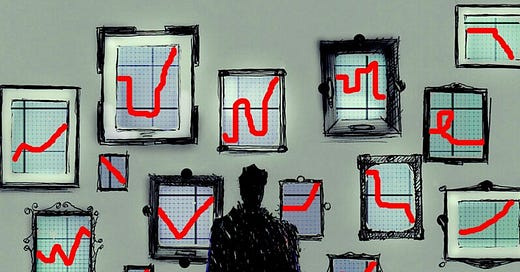





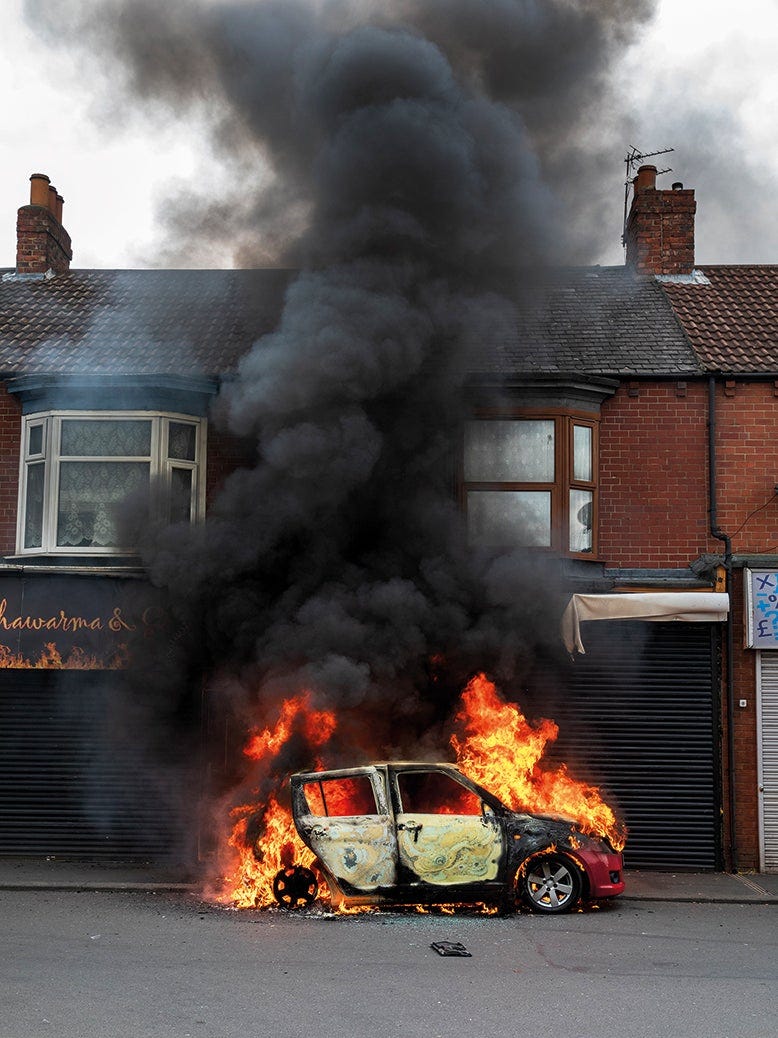
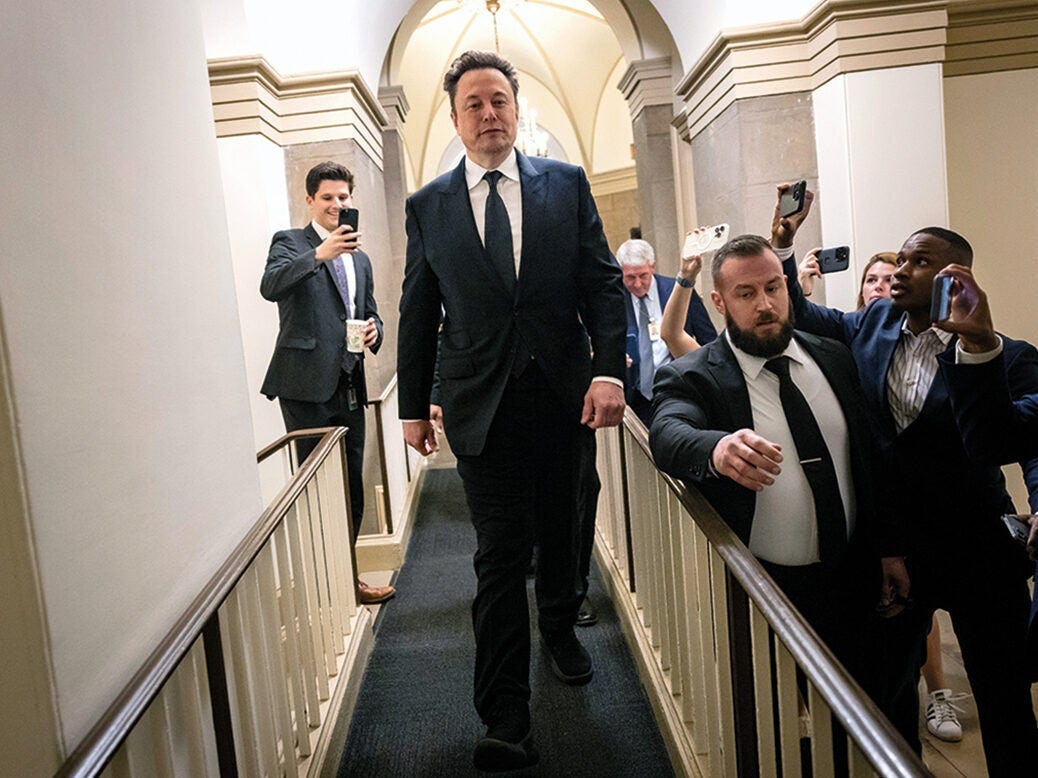
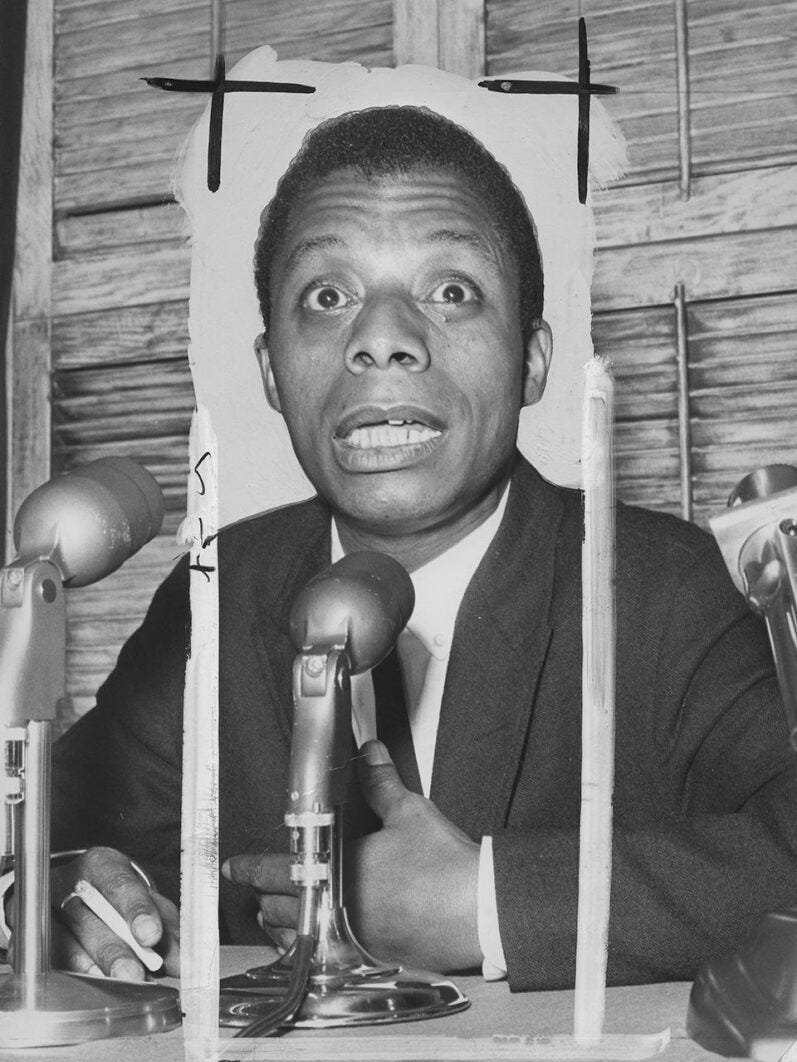

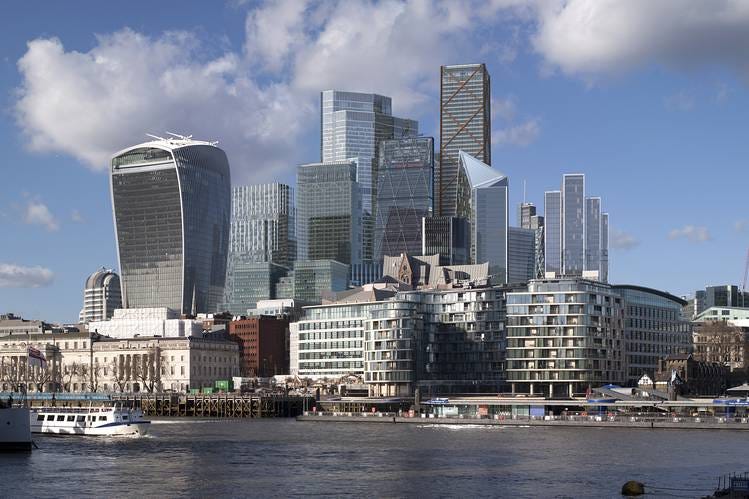



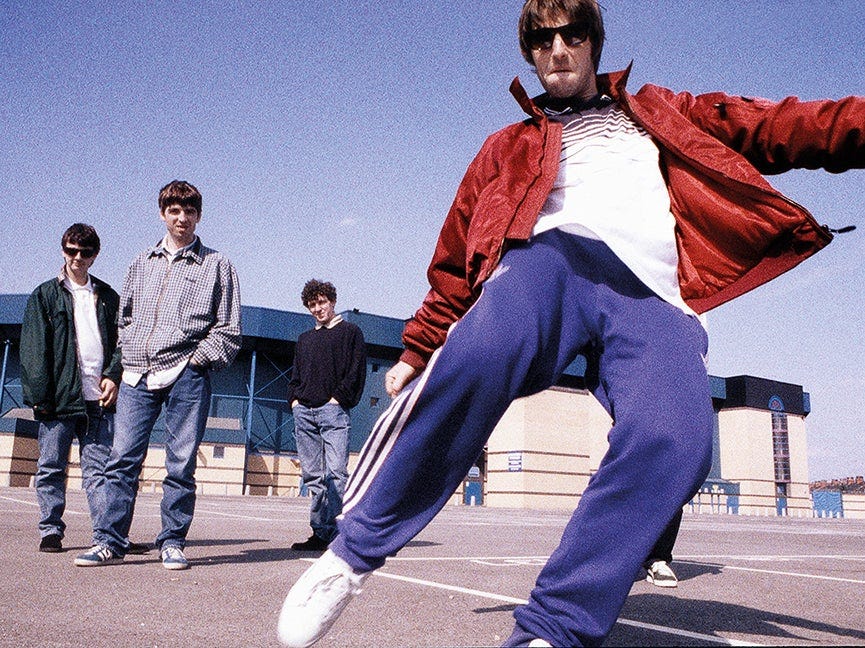


J o